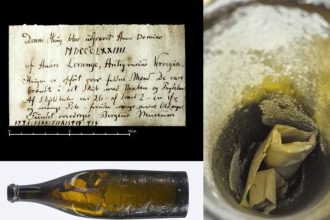
In this post from Alamo, we discuss the cause of blood clots during periods and the causes of fleshy blood clots similar to liver.
The cause of blood clot in period (meat blood clot similar to liver)
It's completely normal to notice some lumps from time to time during your period. These are blood clots that may contain tissue. As the lining of the uterus sheds, this tissue leaves the body as a normal part of the menstrual cycle. So most tissue clots are usually nothing to worry about. In this post from Alamo, we will tell you what is the cause of blood clot during period (meat blood clot similar to liver)?
Also read: emergency pill for fast period
What is the cause of blood clots during periods?
If the bleeding is very heavy throughout the days of your period, you may pass frequent clots, which may be a cause for concern. Menorrhagia means menstrual bleeding that is heavier than usual. Many conditions can affect your menstrual cycle, making them heavier and more prone to clots.
1. Stress is one of the causes of period blood clots
Any type of stress (physical or emotional) can cause the release of stress hormones in the body. This can cause hormonal imbalances that may lead to heavier bleeding and clots.
2. Thyroid disorders are the causes of blood clots during periods
If you suffer from an overactive (hyperthyroid) or underactive (hypothyroid) thyroid gland, it can affect the hormones that regulate your periods. This may affect the flow and intensity of your menstrual cycle. The thyroid is a butterfly-shaped gland located in the front of your neck. Thyroid imbalance may be caused by a variety of conditions, including stress, autoimmune disorders, a diet deficient in iodine or selenium, medications, or tumors.
If your doctor suspects that you are suffering from thyroid disease, he will perform a physical exam, a thyroid panel to estimate TSH, T3, and T4, along with the level of anti-thyroid antibodies in your blood. This may or may not be followed by a thyroid ultrasound.
3. Uterine fibroids
Uterine fibroids grow inside the uterus and its lining can cause heavier periods than normal. Similarly, small lumps called uterine polyps that grow along the cervix or lining of the uterus can cause heavy bleeding and blood clots during your period. Uterine fibroids are often diagnosed using ultrasound, computed tomography scan of the uterus, and laparoscopic procedures.
4. Iron deficiency
Iron deficiency anemia can be one of the causes of menstrual clots, because iron deficiency can disrupt blood clotting and lead to menstrual clots.
Also read: I have spotting but I don't get my period
5. Contraceptive methods
Many types of birth control methods, especially intrauterine contraceptive devices (IUCDs) that are placed inside the uterus, can cause heavier bleeding or clotting during periods. This may occur up to a year after IUCD insertion.
6. Medicines
Many medications can cause blood clots and heavier periods. Medicines such as blood thinners, anticoagulants (warfarin, clopidogrel, aspirin) contribute to abnormal menstrual flow and bleeding. Sometimes they may cause clots.
7. Unwanted abortion
An unrecognized miscarriage early in pregnancy can often be mistaken for a large clot. A pregnancy test may or may not be positive before the period starts. It may be accompanied by abdominal cramps and general malaise (feeling sick).
8. Bleeding disorders
If you suffer from blood disorders such as von Willebrand disease, certain types of blood cancer (leukemia), liver disorders, or thrombocytopenia, you may have heavier periods and clots.
9. Endometriosis
Endometriosis is a condition in which uterine tissue that normally grows inside the uterus grows outside the uterine cavity. This can cause heavy clots during the cycle, abdominal pain and severe cramping.
10. Polycystic ovary syndrome (PCOS)
Women suffering from polycystic ovary syndrome often have heavy clots and bleeding. It is a metabolic disorder in which a woman has ovulation problems and irregular periods along with other abnormal parameters such as increased fasting insulin, abnormal blood progesterone-to-estrogen ratio, among others.
11. Cancers
Cancer of the uterus and cervix is one of the rare causes of heavy periods and clots.
12. Adenomyosis
The uterine tissue that normally covers the uterus (endometrial tissue) grows into the muscular wall of the uterus (myometrium).
13. Miscellaneous
In many cases, despite investigations, no clear cause can be found. In these cases, symptomatic treatment and lifestyle modification are often prescribed.
Also read: What should we eat to stop the period immediately?


What is the sign of a liver-like blood clot during a period?
Types of normal blood clots usually include:
Smaller (no bigger than a quarter) Occasional (usually occurs at the beginning of your menstrual cycle) Light or dark in color
On the other hand, abnormal blood clots include:
Greater than a quarter occurs frequently
It's completely normal to notice some lumps from time to time during your period. These are blood clots that may contain tissue. As the lining of the uterus sheds, this tissue leaves the body as a normal part of the menstrual cycle. Therefore, tissue clotting is usually not a concern.
What is the symptom of blood clot during period?
Endometriosis can cause blood clots during periods. Endometriosis is a disease that involves the development of endometrial-like tissue (endometrium is the inner lining of the uterus) outside the uterus. In endometriosis, tissue usually grows in the uterus on other organs and tissues. When a person menstruates, this tissue or mass like the inner wall of the uterus falls and bleeds.
Also read: Strong menstrual opener at home with traditional medicine
last word
In this post from Alamo, we mentioned the cause of blood clots during periods. This condition generally indicates heavy periods. However, if your period is wetting more than one pad or tampon every 1 to 2 hours, talk to your doctor or nurse. Also, if your periods last more than a week or you have a lot of pain with your periods, it is better to get checked.
RCO NEWS
RCO















